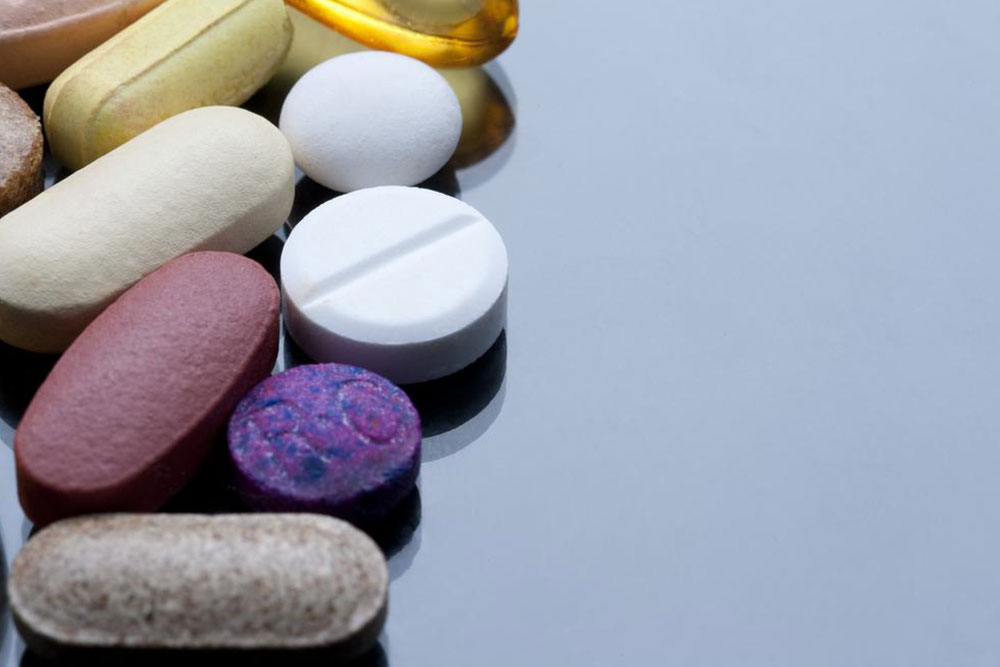Best Vitamins for a Healthy Heart
Supplements and vitamins can help your muscles, bones, and many other body parts. According to many medical study reports, some of the vitamins and supplements may help in improving the blood pressure, lowering the cholesterol level along with maintaining other things that can put your heart at risk. Here is a list of some of the best vitamins for a healthy heart and some supplements. Even though it is unclear whether these vitamins or food supplements help in preventing strokes, heart attacks, and other heart-related diseases or not, but still it is sure that these help in maintaining a healthy heart.

Vitamin B9 (Folic Acid)
This is one of the best vitamins for a healthy heart, which you can add to your diet chart. It helps in regulating the homocysteine in the bloodstream. This homocysteine is an amino acid that is associated with the possible risks of causing blood clots. Broccoli, asparagus, Brussels sprouts, and lentils are great natural resources of vitamin b9.
Vitamin D
Many medical research reports have reflected the fact that deficiency of vitamin D can lead to higher chances of heart-related problems. Hence, getting a sufficient amount of vitamin D is necessary to stay healthy. Your body produces this one of the best heart health vitamins. If you are in the sunlight, the production rate of vitamin D increases. However, being in the sunlight for a long time can cause other health issues as well.
Vitamin D helps in regulating blood pressure. Aging, obesity, and getting lesser exposure to the sunlight can cause a deficiency of this vitamin.
Coenzyme Q10
Well, technically, this is an enzyme. It not only helps in keeping a better heart health but also helps in lowering the cardiac failure signs and symptoms as per many medical study reports. Also, after having a surgery, Coenzyme Q10, along with some other nutrients, speeds up the recovery time. This antioxidant is naturally found in the highest concentration mostly in meats, soybean products, and in some nuts. In most of the commonly eaten foods, it can be found in relatively low concentration. Supplement for this enzyme is available in the market.
Vitamin B
According to medical research reports, vitamin B3 helps in reducing triglyceride and cholesterol levels, which help in maintaining heart health. However, too much of vitamin B3 can increase other potential health risks. In some rare cases, it can cause gastrointestinal disturbances and impaired glucose control. This is why it is essential to consult a health care professional to know whether you will need this supplement or not.
Omega-3 fatty acids
To keep your heart’s functionalities healthy and fit, other than the best vitamins, the omega-3 fatty acids play a significant role in the healthy functioning of your heart. As the body does not naturally produce this type of acid, you might have to take supplements after consulting a medical expert.
Fatty fishes such as sardines, mackerel, tuna, and salmon are rich in these omega-3 fatty acids. Adding these fishes to your diet will help in keeping your heart healthy. Although these supplements cannot diminish the risks of different heart diseases on their own, they still are beneficial if taken with a healthy diet along with an exercise routine.
Magnesium
Along with the best heart health vitamins, magnesium supplement is also important for lowering the symptoms and signs of cardiac failure. The magnesium deficiency is known as hypomagnesemia. In order to deal with this effectively, the medical experts can guide you to take magnesium supplements. Along with taking it, try to maintain a healthy lifestyle and it will help you to stay fit.
Potassium (Vitamin K)
Various medical studies have shown that potassium helps in regulating the levels of blood pressure. If you add such vegetables and fruits to your diet that are rich in this vitamin, you will be able to get its nutritional benefits. Potatoes and bananas contain a high amount of potassium. Usually, the leafy green vegetables contain vitamin K along with nitrates that help by improving the arterial function as well. The more you add such leafy green vegetables in your diet, the lesser is the risk of getting affected by the heart diseases.
Apart from all the aforementioned best heart health vitamins and supplements, it is advisable to intake such foods that are rich in fiber. It may help in reducing the LDL –the “bad” cholesterol level in the bloodstream. Some of the common sources of whole grains are brown rice, wheat, barley, oats, buckwheat, quinoa, and rye.
For a better understanding of the diet, you can consult a dietician or a doctor, who will make a perfect diet chart for you depending on the nutritional value of the vegetables and fruits that you need to intake.

